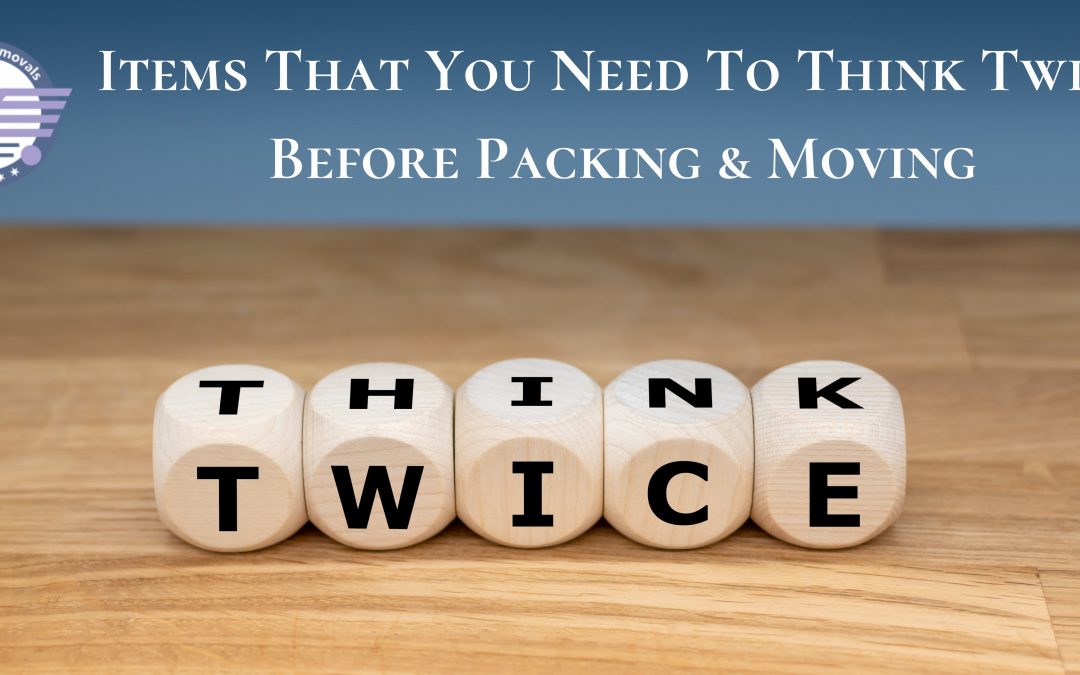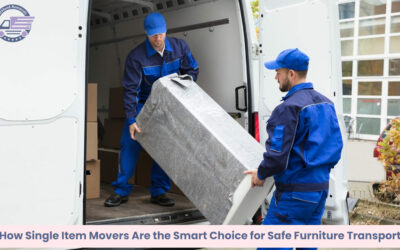Moving to a new place can be an exciting but challenging experience. It involves a great deal of decision-making, particularly when it comes to packing your belongings. Not only do you have to decide what gets packed and how it gets packed, but you also need to make choices about what stays behind. This becomes even more crucial during long-distance relocations, as the professional moving company often bases its fees on the weight of the cargo and the distance traveled.
To reduce the cost and hassle of your move, it’s important to make sound judgments in the lead-up. In this blog post, we will discuss smart decisions you can make to ensure a smooth move, including what to pack and what to leave behind.
What To Pack And What To Leave Behind
1. Assess The Value:
When you’re faced with the task of packing for a move, it’s important to ask yourself why you desire to keep each item. Consider whether there is a sentimental attachment or if it truly brings you happiness. If an item doesn’t fall into either of these categories, let it go. Allison Dunn of Organized Spaces by Allie suggests, “If it’s not for sentimental reasons or bringing you joy, you should be able to get rid of it.” By assessing the value of each item, you can make more informed decisions about what to pack.
2. Think Twice Before Replacing
While downsizing can be a great idea to create a clutter-free environment, it’s essential to think twice before getting rid of things to replace them. Moving itself can be expensive, so you want to avoid adding unnecessary expenses by replacing items that could still serve a purpose. Ann Lightfoot, a professional organizer and co-founder of Done & Done Home, advises, “Don’t get rid of that old pot and think now is the time to buy the new Le Creuset.” Instead, consider the practicality of the item during the transition period. It might be more convenient to have certain items on hand while you settle into your new home.
3. Old Or Bulky Products
Not all belongings need to make the journey with you. It’s important to distinguish between necessary or valuable items and old or unneeded ones. Things that are no longer useful can be sold, given away, or donated to those in need. However, ensure that any furniture being relocated by your moving company isn’t going to be replaced soon. By reducing the number of items, you take with you, you not only save on moving costs but also create a fresh start in your new home.
4. Large And Delicate Items
Some items are difficult to move due to their size or fragility. These items require special care and attention. Contact your moving and storage company in advance to make necessary arrangements for valuable items such as fragile glassware, ornaments, or substantial musical instruments. Taking extra precautions will minimize the risk of damage during the move.
5. Old Or Unused Appliances
If you have additional or old appliances you can live without in your new home; it’s best to leave them behind. Moving outdated appliances is not only risky but also adds unnecessary weight and cost to your move. Consider selling them to a local dealer, your previous landlord, or neighbors, or even donating them to charity. By doing so, you not only lighten your load but also give these appliances a chance to be useful to someone else.
6. Obsolete Mattresses
Moving is an ideal time to evaluate the condition of your mattress. If your mattress is old or worn out, it’s best not to bring it along to your new house. Mattresses typically need to be replaced after eight years of use for optimal comfort and support. Instead of moving an old mattress, consider purchasing a new one at your new address. Many mattress brands offer convenient same-day delivery, ensuring you have a comfortable place to sleep upon arrival.
7. Unworn Clothes
Relocating provides an excellent opportunity to declutter your wardrobe. Sort your clothes and donate or sell any items you no longer wear or have outgrown. This not only reduces the number of items to pack but also allows you to start fresh in your new home. You can even consider giving them to close family members or friends rather than selling them, fostering a sense of connection and sustainability.
8. Important Papers
While it may be tempting to recycle stacks of papers rather than pack them, it’s important to preserve vital documents. These documents may include your lease agreement, important receipts, mortgage papers, contracts, or tax return forms. Before your move, please go through all your documents and ensure they are organized and easily accessible. Place them in a labeled file folder or a transparent envelope, making them easy to find when needed.
9. Old Toys
When moving with children, it’s important to declutter their toy collection. Items that your children no longer use or have lost interest in can be traded or donated to charity. This not only reduces the number of toys to be packed but also allows other children to enjoy them. Consider donating them to a nearby school or church, giving underprivileged children the opportunity to have a toy they otherwise couldn’t afford.
10. Bins For Storage
While you may underestimate your storage requirements in your new location, it’s wise to hold onto storage bins, boxes, and Tupperware. These items can be repurposed in numerous ways to organize your new home. Even if you eventually decide to replace them, having them initially can be immensely helpful during the moving process and in setting up an organized living space.
11. Tough-To-Move Items
Certain items may require special arrangements or pose challenges for your moving company. Instead of going through the trouble and expense of moving such items, consider donating them to a nearby school or church. For example, if you have a piano of poor quality or no sentimental value, it might be better to give it to an organization that can make good use of it.
Conclusion
Packing efficiently for a move isn’t just about fitting everything into the moving truck; it’s also about making smart decisions about what to leave behind. By assessing the value and practicality of your belongings, you can reduce the cost and stress of your move. Carefully consider what to pack and what to leave behind to ensure a smooth and seamless transition to your new home. Remember, moving is an excellent opportunity to declutter and create a fresh start, so make the most of it.
For more information or assistance with your move, feel free to contact us at Best Auckland Removals. We are available 24/7 to answer your queries and provide the best moving services.
Contact us now:
Call us at: 098896066
Or Can also mail us on: info@bestaucklandremovals.co.nz
Related Blogs
How To Make A Coast-To-Coast Move Cheap and Easy with Furniture Movers North Shore ?
Picture this: You land a dream job across the country, or your family grows and needs more space on the other coast. Maybe a fresh start calls after retirement, or a business opportunity pulls you far from home. These real-life moments spark coast-to-coast...
How Single Item Movers Are the Smart Choice for Safe Furniture Transport
Moving one piece of furniture often sounds easy (until you start planning it). One sofa, one piano, one solid wood cabinet. No packed rooms. No boxes everywhere. Yet this is exactly where people run into problems. Not because the job is big. But because all the risk...
Furniture Removals Wellington: Why Experience Matters Most
Furniture moves don’t usually go wrong because people didn’t try hard enough. They go wrong because the wrong decisions were made at the wrong time. Most of those decisions happen quietly, often before the move even begins. Yet they shape how furniture is handled, how...



